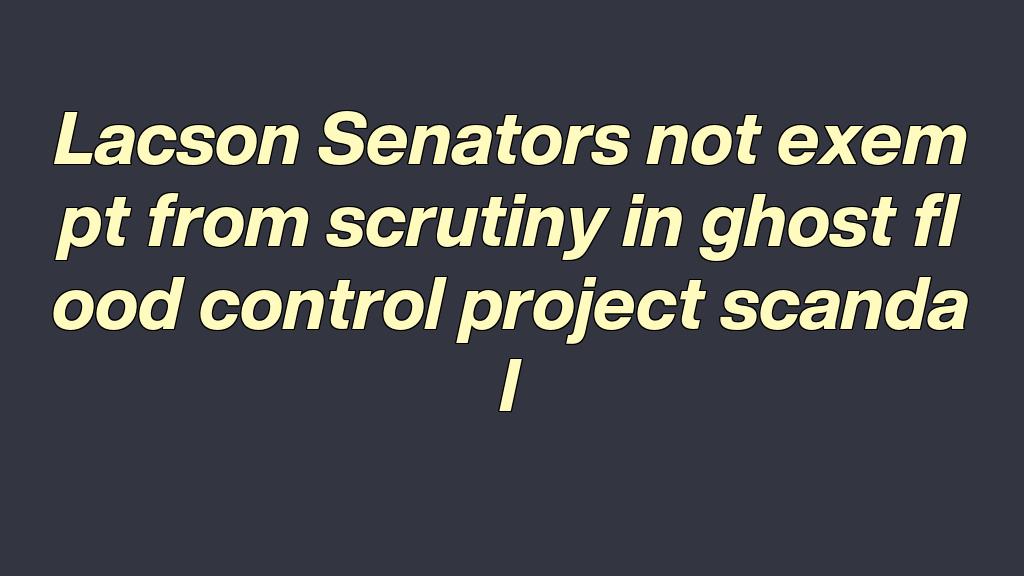MANILA, Philippines – Sen. Panfilo Lacson on Saturday warned that senators, along with members of the House of Representatives, may be complicit in the ongoing controversy involving anomalous and ghost flood control projects, reiterating his call for complete transparency in the national budgeting process.
Lacson said on radio that lawmakers from both chambers routinely propose budget amendments or "insertions"—a practice that, while technically legal, can be exploited to channel funds into questionable infrastructure projects.

“I’m not saying it’s only House members,” Lacson said in Filipino. “It’s possible that some senators have inserted funding for such projects and even profited from the 25 percent share typically given to the ‘funder’ or proponent.”
Pressed further on whether senators might be tied to these fraudulent schemes, the senator replied, “There may be senators and House members who are connected to anomalous flood control projects.”
Lacson: Senators not exempt from scrutiny in ghost flood control project scandal, This news data comes from:http://lett.gyglfs.com
Lacson, a long-time advocate for budget transparency, refrained from naming specific individuals, stressing the importance of solid evidence. “It’s not right to name names without proof,” he said. “In my case, I only make findings public once they are backed by factual and verifiable information.”
- Modi and Putin affirm special relationship as India faces steep US tariffs over Russian oil imports
- Thai court to rule on PM's fate after Hun Sen call leak
- Marcos lauds Filipinos for role in nation building on National Heroes Day
- Marcos to youth: Help in nation-building
- No winner in lotto draws for Aug 23
- Govt preparations for WorldSkills PH hosting go 'full blast'
- Palace rejects Sara's offer of 'free advice' on flood solutions, says to give it to 'Mayor Baste' instead
- Lawmaker linked to anomalous flood control projects in US for medical reasons, says House spokesman
- Japanese climber, 102, sets Mount Fuji record
- Task force cites new threats to media workers